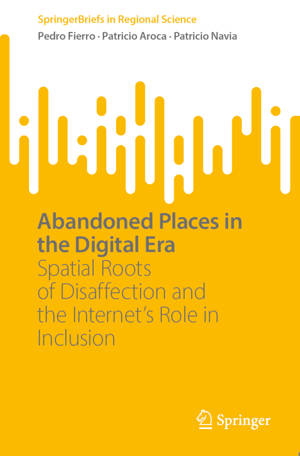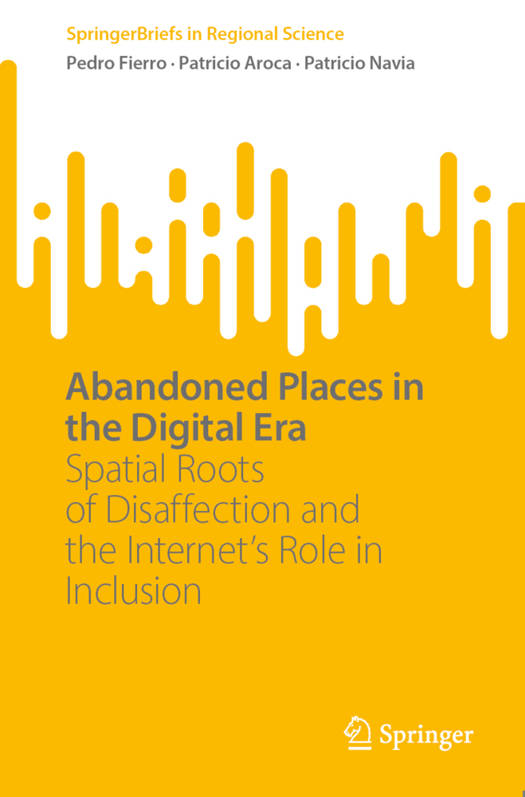
- Retrait gratuit dans votre magasin Club
- 7.000.000 titres dans notre catalogue
- Payer en toute sécurité
- Toujours un magasin près de chez vous
- Retrait gratuit dans votre magasin Club
- 7.000.0000 titres dans notre catalogue
- Payer en toute sécurité
- Toujours un magasin près de chez vous
Abandoned Places in the Digital Era
Spatial Roots of Disaffection and the Internet's Role in Inclusion
Pedro Fierro, Patricio Aroca, Patricio NaviaDescription
This book explores the spatial and contextual factors behind citizens' anger, frustration, and sense of abandonment, alongside the role of digital platforms in politically marginalized areas. It shifts the focus from voting geography to the geography of discontent, offering a new perspective on digital inequalities. The study addresses the complexities of "left-behind" places, recognizing that patterns of decline in developed countries differ from those in developing nations, where political and cultural dynamics play a key role.
Using Chile's Valparaíso region as a case study, the book applies its framework to a context characterized by a strong party system, robust institutions, and high Internet penetration. Chile's recent political crisis, marked by widespread dissatisfaction, makes this analysis particularly relevant. Valparaíso, with its unique role as the host of the National Congress and as a focal point of the 2019 social uprising, serves as a microcosm for understanding the spatial dimensions of political discontent in digitally connected societies.
Spécifications
Parties prenantes
- Auteur(s) :
- Editeur:
Contenu
- Nombre de pages :
- 78
- Langue:
- Anglais
- Collection :
Caractéristiques
- EAN:
- 9783031818721
- Date de parution :
- 29-03-25
- Format:
- Livre broché
- Format numérique:
- Trade paperback (VS)
- Dimensions :
- 156 mm x 234 mm
- Poids :
- 145 g

Les avis
Nous publions uniquement les avis qui respectent les conditions requises. Consultez nos conditions pour les avis.






